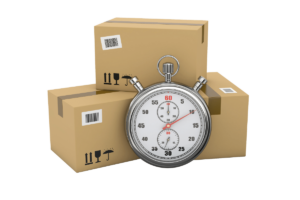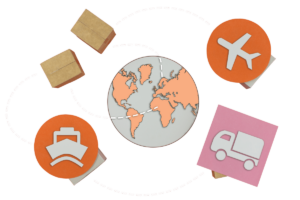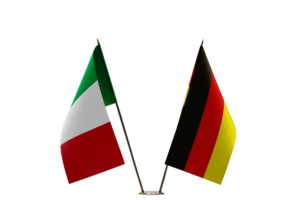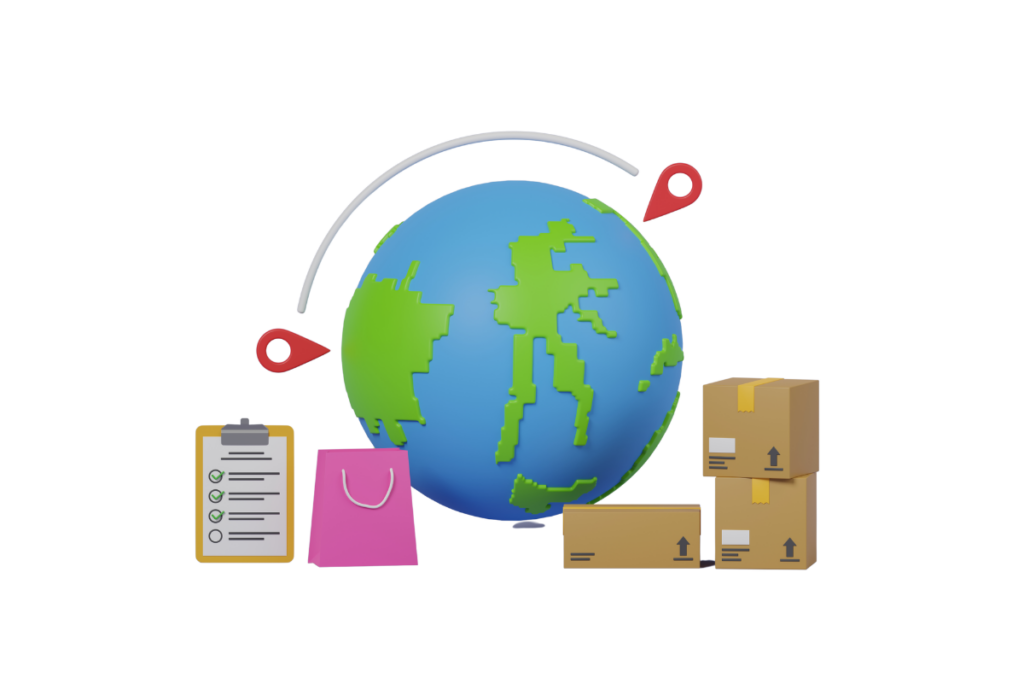Efficiency in delivery times is a crucial component in international trade, and when it comes to the trade relations between Germany and Italy, precision in logistics becomes crucial.
Delivery times between Germany and Italy are a central aspect in maintaining an efficient trade flow between these two countries.
Italy’s geography and strategic position as a bridge between northern and southern Europe make the country a major logistics hub. Effective delivery times between Germany and Italy play a crucial role in supporting a wide range of industries, from automotive to agriculture.
These two countries are linked by an intricate network of shipments, and on-time delivery is vital to maintain the competitiveness of companies and meet customer expectations.
In this article, we will explore in detail how delivery times between Germany and Italy have become an essential element of international trade between these two countries.
We will see what are the challenges and solutions adopted by companies in order to ensure reliable and competitive delivery times. Germany-Italy delivery times remain at the heart of this partnership and are set to play an increasingly important role in the future of economic relations between these two countries, contributing significantly to the success of businesses.
Delivery times Germany Italy: a key to commercial success
Transport from Germany to Italy
Shipping from Germany to Italy: the importance of transnational trade
Technologies and innovations in the logistics sector
The importance of sustainability in transport between Germany and Italy
Shipping times from Germany to Italy

Transport from Germany to Italy
The transport of goods between Germany and Italy is an essential element of the European economy, representing a continuous flow of goods across the borders between these two countries. Germany, with its robust economy and central position in Europe, is one of Italy’s main trading partners, and viceversa.
These two countries are connected by an intricate network of transport infrastructure, including roads, railways, waterways, all designed to facilitate the fast and efficient movement of goods.
As seen, shipments between Germany and Italy cover a wide range of sectors, each with their own needs and requirements. This diversification makes transport between the two countries even more crucial, as it is essential to ensure that goods are delivered on time and safely to support production and customer demand.
The challenges in transport between Germany and Italy include not only optimising routes, but also managing customs regulations and bureaucratic formalities, given the differences in the administrative systems of the two countries. However, with technological progress and digitisation of logistical processes, companies are becoming increasingly capable of overcoming these challenges and ensuring reliable delivery times.

Shipping from Germany to Italy: the importance of transnational trade
Germany-Italy shipping is a key process for transnational trade between these two important players in the European Union. Efficient forwarding, as mentioned above, not only promotes economic integration between Germany and Italy, but also contributes to the success of businesses and customer satisfaction.
Shipments of goods from Germany to Italy are a vital part of the supply chain for companies in both countries.
The diversity of sectors involved in this process is remarkable, ranging from automotive manufacturing to electronics, from food products to clothing and fashion. Each of these sectors has specific shipping needs, requiring careful planning and the use of appropriate means of transport to ensure the timely and safe delivery of goods.
The challenges accompanying the Germany-Italy shipment also include the handling of customs regulations and bureaucratic formalities, along with variations in the administrative systems of the two countries.
Based on the above, shipping goods from Germany to Italy, and viceversa, is a strategic process that underlines the deep interconnection between these two countries. The continuous optimisation of shipments is essential to support economic growth and business expansion.

Technologies and innovations in the logistics sector
In the modern era of transnational logistics, advanced technologies are playing a crucial role in optimising delivery times between Germany and Italy. Countless innovations, such as the integration of artificial intelligence and new technologies, are revolutionising the industry, bringing tangible benefits.
A major innovation is the widespread use of the IoT (Internet of Things). Companies are deploying sensors and Internet-connected devices on their vehicles and goods to monitor the location and condition of shipments in real time.
This allows greater visibility into the status of goods and vehicles throughout the supply chain, enabling more accurate monitoring and better planning of deliveries. In this way, companies can anticipate any delays or problems and act promptly to resolve them.
Artificial intelligence, as mentioned, is another key technology that is helping to improve logistics efficiency. AI algorithms can analyse large amounts of data in real time to optimise delivery routes, taking into account various factors such as traffic, weather conditions and resource availability.
Blockchain is emerging as an important tool for ensuring transparency and security in transactions and deliveries. This decentralised technology immutably records every step in the delivery process, from collection to the recipient’s signature, ensuring a reliable chain of custody.
All these advanced technologies are transforming logistics between Germany and Italy, enabling faster delivery times, more efficient management of resources and greater trust between businesses and consumers.
The importance of sustainability in transport between Germany and Italy
Environmental sustainability has become a crucial priority in the logistics sector, and this also applies to shipments between Germany and Italy. With increasing environmental concerns and growing awareness of the importance of reducing carbon emissions, companies are taking an increasingly responsible approach to the environment.
One of the main drivers of this transition towards sustainable logistics is pressure from civil society and consumers themselves, who expect more environmentally friendly business practices. This growing awareness has prompted companies to look for innovative solutions to reduce the environmental impact of shipments between Germany and Italy.
To meet this need, one of the main initiatives is the adoption of low-emission or even electric vehicles for road transport. These technologies help to significantly reduce the carbon footprint of shipments, while improving energy efficiency and reducing long-term operating costs.
Many companies are reconsidering their supply chain management strategies to optimise transport routes, thereby minimising the distances travelled and energy consumption. Optimising routes not only reduces emissions, but also helps to improve delivery times, offering both environmental and economic benefits.
On the basis of the above, sustainable logistics is becoming more and more central in shipping between Germany and Italy. Companies recognise the importance of reducing environmental impact and are consequently adopting innovative solutions that improve efficiency and preserve the environment.
But now to the crucial question of this article: how long does it take to send a parcel to Germany?
Shipping times from Germany to Italy
Delivery times Germany Italy are a critical issue for anyone who needs to ship a parcel or goods from one country to another. The most common question is: “How long does it take to ship a parcel to Germany?”.
The response depends on several factors, including the shipping service used, the distance between the sender and the recipient, and the type of goods to be delivered. In general, standard shipments between Germany and Italy usually take 2 to 5 working days, but there are faster options for urgent shipments.
Sinergy Solution is the ideal partner for imports and exports to and from Germany. Our reputation is based on the reliability, precision, speed and customisation of the service we offer.
Our team is always available to answer customer questions and address any problems that may arise along the way. Thanks to our dedicated service team, we are able to provide constant support and resolve any problems in a timely and efficient manner.
Our online tracking service allows customers to easily control and monitor the entire shipping process in real time, offering greater peace of mind and security.

Our customers’ satisfaction is our top priority, which is why we are committed to offering a service that is carefully planned down to the smallest detail, customised to meet the specific needs of each customer.
Our dedication is centred on adapting every aspect of our work to individual needs, thus ensuring a hassle-free and tailor-made shipping experience. Sinergy Solution is the ideal choice for anyone looking for reliable, efficient and customised shipping between Germany and Italy.
Find out how Sinergy Solution can make your shipping process a more than positive experience. We are ready to listen to your requests and provide tailor-made solutions for your shipments, while guaranteeing maximum accuracy and speed. Contact us to request more information.


